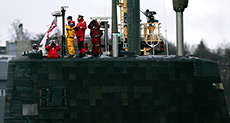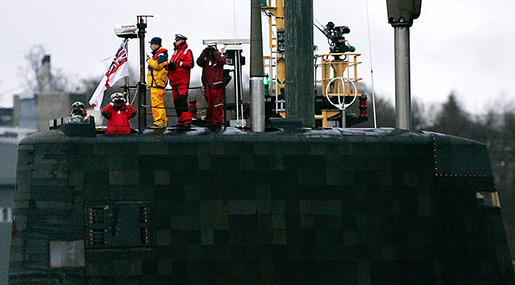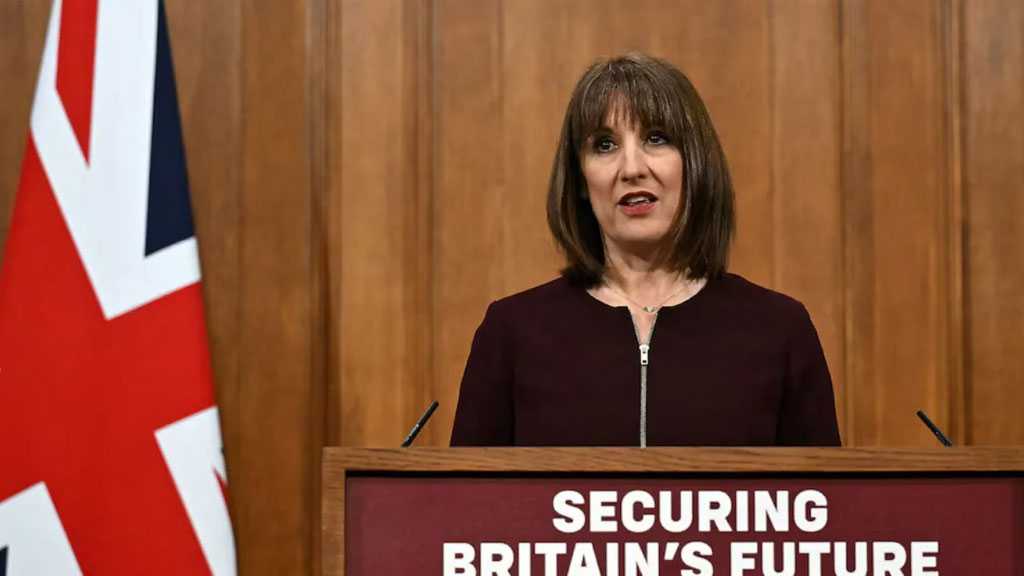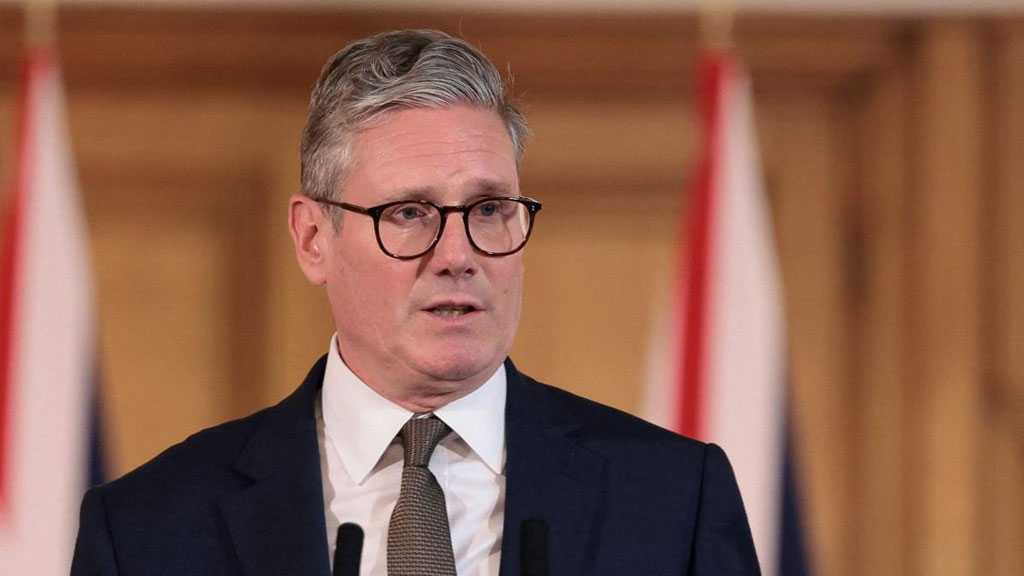Opponents: May Must Explain Trident Malfunction «Cover Up»

Local Editor
Labor and the Scottish National Party [SNP] said Prime Minister Theresa May must explain why Parliament was not told about a failed Trident missile test before a crucial vote on whether to renew Britain's aging nuclear weapons program.

Downing Street confirmed on Monday morning that May knew about the malfunction before MPs voted on the system's renewal.
A spokesperson said the incident occurred on former PM David Cameron's watch, but admitted May had known about it.
The incident, in which a test fired missile veered towards the United States, was not reported until Sunday, but occurred only weeks before a key Commons vote on Trident renewal.
The spokesperson confirmed the crew of the nuclear submarine involved, HMS Vengeance, were "certified" to continue operating.
The vote went overwhelmingly in favor of renewal after May lobbied hard for the UK's nuclear deterrent.
Almost immediately after Downing Street's confession, a statement on behalf of David Cameron's former media team denied any cover up had taken place.
A spokesman claimed it was "entirely false to suggest David Cameron's media team covered up or tried to cover up the Trident missile test," according to the Huffington Post.
The Cameron team also criticized claims of a cover-up made by defense committee chair Julian Lewis earlier on Monday.
"We are disappointed that Julian Lewis would make these claims with no evidence."
Leading figures in both parties are set to use the incident, which occurred in June 2016 just weeks before a House of Commons vote on renewal, to attack the government. News of the missile malfunction only emerged on Sunday.
The SNP is committed to opposing it on the basis of safety and security, as the nuclear submarine fleet is based in Scotland.
The Labor leadership is opposed to nuclear weapons, but the majority of its parliamentary party is in favor of renewal.
SNP defense spokesman Brendan O'Hara told the BBC there are political and operational issues which must be addressed, but warned "this is not a national security issue."
"The government can't, as they love to do, hide behind the national security smokescreen. The public, who are paying over two hundred thousand million pounds [US$249 billion] for this renewal, have a right to know if it works or not," O'Hara said.
Labor's Shadow Defense Secretary Nia Griffiths said a full explanation is due, while Shadow Chancellor John McDonnell said it is "extremely worrying" that parliament had not been informed of the incident.
Likewise former Labor Defense Minister Kevan Jones told Labour List, "If there are problems, they should not have been covered up in this ham-fisted way. Ministers should come clean if there are problems and there should an urgent inquiry into what happened."
In a car-crash interview on Sunday with the BBC, May refused to disclose whether she knew about the incident ahead of the vote on Trident. MPs ruled in favor of renewal by 472 votes to 117.
Instead she opted to say she had complete faith in Trident and that she thought "we should defend our country," with repeated references to Labor leader Jeremy Corbyn's opposition to Trident.
Senior military figures have also weighed in, with former head of the Royal Navy Lord West of Spithead writing in the Daily Mail that this had been a cover-up "worthy of North Korea."
"The decision to withhold news last summer that a Trident missile test experienced some kind of problem - ironically, almost certainly minor - is both bizarre and spectacularly stupid," West said in an opinion piece, urging Defense Secretary Michael Fallon to step up and explain.
Senior Tories have been attempting a fightback on the issue, with Business Minister Greg Clark telling Sky News "It's been the long-standing policy not to comment on tests of weapons systems and, if that's the approach that you take, I think we have to abide by that approach."
This argument somewhat falls down on the fact that successful tests are regularly reported, including with video of the launches.
Tory head of the Defense Committee Julian Lewis said as much in his intervention early on Monday.
"This sort of event is one that you can't play both ways ... whenever they work, which is 99 percent of the time, films are released of them working," he said.
Lewis said someone should be held to account for the decision.
"I always think with something like this it is better to lay it on the line ... In the end you have always got to assume that something like this will come out," Lewis said.
Source: News Agencies, Edited by website team
Comments




